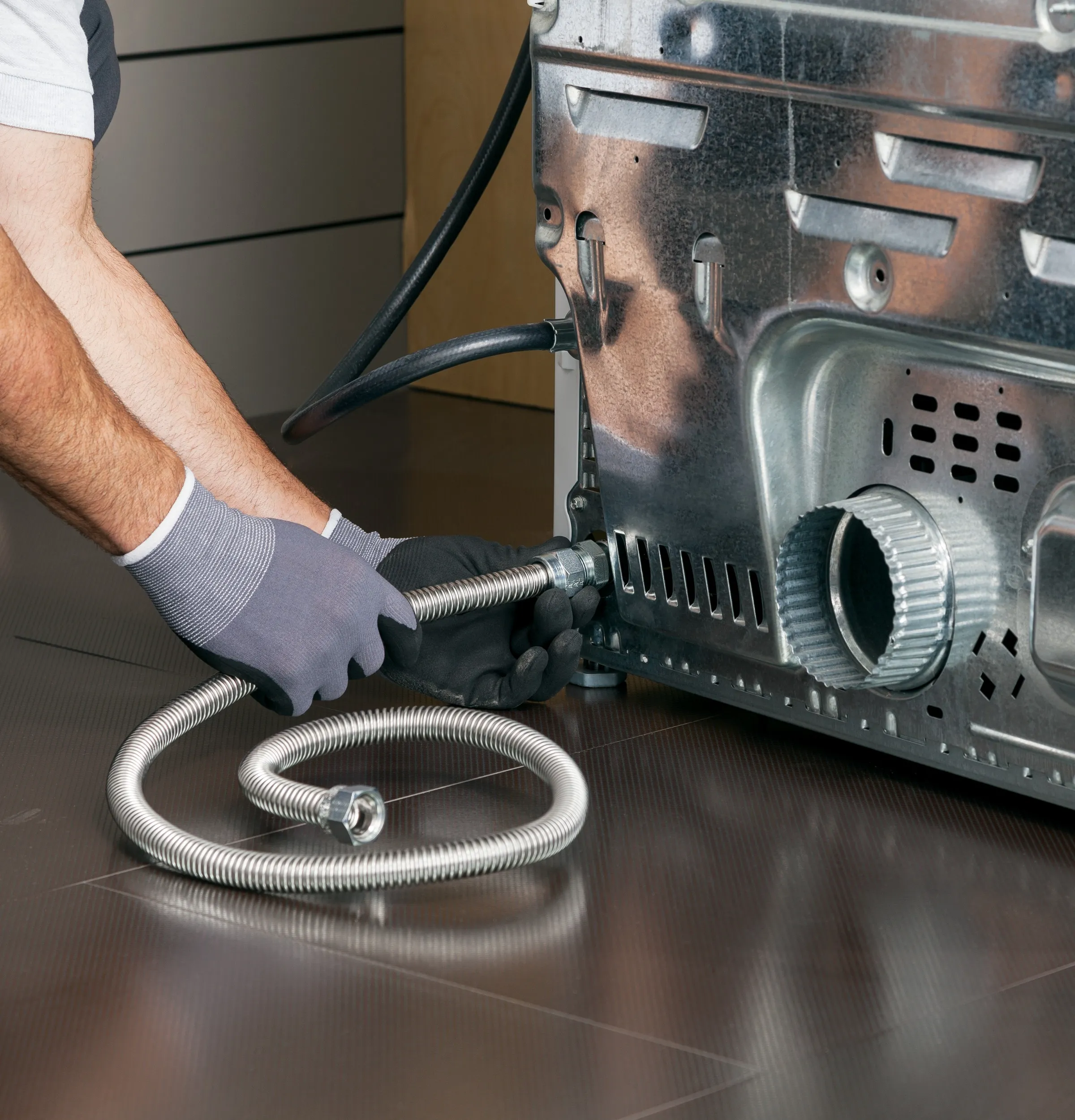Unlock the true potential of your gas dryer by converting it to propane. If you’re facing issues with insufficient drying capacity, excessive energy consumption, or unreliable performance, the solution lies in propane conversion. This article will guide you through the process, providing expert tips and valuable insights.
Gas Dryers: A Struggle with Efficiency
Gas dryers, while offering convenience, often fall short in efficiency. They require extensive energy consumption, resulting in higher utility bills. Additionally, their drying performance may fluctuate, leaving clothes damp or even wrinkled.
Unlocking the Power of Propane
Propane conversion transforms your gas dryer into a high-performance powerhouse. Propane burns hotter and cleaner than natural gas, significantly improving drying efficiency. The higher temperatures accelerate the evaporation process, reducing drying time and energy usage.

Moreover, propane conversion enhances the dryer’s durability and reduces the risk of breakdowns. The cleaner combustion process minimizes carbon buildup, ensuring optimal airflow and longevity.
Personal Experience: Witnessing the Transformation
As a homeowner who frequently grappled with an inefficient gas dryer, I decided to take the plunge and convert to propane. The results were astounding. My dryer’s drying time was reduced by almost half, and my energy bills saw a noticeable drop.
Beyond the practical benefits, the conversion process was surprisingly straightforward. A licensed professional completed the installation quickly and efficiently. Since then, my dryer has been performing flawlessly, delivering consistently dry and wrinkle-free clothes.

Unveiling the History and Myths
Propane conversion for gas dryers has a rich history, dating back several decades. Despite its proven advantages, misconceptions and myths persist.
One common misconception is that propane conversion is unsafe. However, when performed by a qualified technician, it poses no additional risks. Propane is a widely used fuel, and its safety record in residential applications is impeccable.

Hidden Secrets: Uncovering the True Potential
Propane conversion goes beyond mere energy efficiency. It opens up a world of possibilities for your laundry routine.
By eliminating the moisture buildup common in gas dryers, propane conversion reduces the risk of mold and mildew growth in your laundry room. Additionally, the higher temperatures kill bacteria and allergens, leaving your clothes hygienically clean.

Expert Recommendations for Optimal Performance
To maximize the benefits of propane conversion, consider the following recommendations:
1. Engage a licensed and experienced professional to ensure a safe and efficient installation.
2. Choose a propane tank size that aligns with your dryer’s usage and frequency.
3. Regularly inspect the propane tank and connections for leaks and integrity.
Propane Conversion: A Comprehensive Guide
For a more in-depth understanding of propane conversion, delve into the following tips:
1. Determine if your gas dryer is compatible with propane conversion. Refer to the manufacturer’s specifications or consult with a professional.
2. Calculate the propane consumption based on your dryer’s BTU rating and usage patterns.
3. Explore available propane tank options, including above-ground and underground tanks, and select the one that best suits your needs.

Fun Facts: Propane’s Surprising Versatility
Propane conversion not only enhances your dryer’s performance but also opens up a range of unexpected possibilities:
1. Propane can be used for various household appliances, including stoves, water heaters, and fireplaces.
2. It’s an excellent fuel for outdoor activities, such as grilling and camping.
3. Propane powers vehicles, offering a clean and efficient alternative to gasoline.

How to Convert Your Gas Dryer to Propane
Converting your gas dryer to propane requires the following steps:
1. Gather necessary materials, including a propane conversion kit, propane tank, and regulator.
2. Locate the dryer’s gas valve and disconnect the natural gas line.
3. Connect the propane hose to the dryer’s gas valve and the tank regulator.

What Happens If You Convert Your Gas Dryer to Propane?
Propane conversion brings a range of benefits:
1. Increased drying efficiency, reducing drying time and energy consumption.
2. Enhanced durability and reduced maintenance costs due to cleaner combustion.
3. Eliminates moisture buildup, preventing mold and mildew growth in your laundry room.
A Listicle of Propane Conversion Advantages
Summarizing the advantages of propane conversion:
1. Reduced drying time and energy consumption
2. Improved drying performance and wrinkle reduction
3. Increased dryer lifespan and reliability
4. Eliminates moisture buildup and reduces mold risk
5. Kills bacteria and allergens, enhancing hygiene
Questions and Answers: Addressing Your Concerns
1. Q: Is propane conversion safe?
A: Yes, when performed by a qualified professional.
2. Q: How much does propane conversion cost?
A: Varies depending on factors like tank size and installation complexity.
3. Q: Can I convert my dryer to propane myself?
A: Not recommended; professional installation is crucial for safety and efficiency.
4. Q: What type of propane tank do I need?
A: Above-ground or underground, sized according to your dryer’s usage.
Conclusion of Unlock Your Gas Dryer’s True Potential: Discover Pro Tips For Propane Conversion
Unlocking your gas dryer’s true potential through propane conversion is a wise investment that delivers tangible benefits. By embracing this conversion, you’ll enhance your laundry experience, reduce energy consumption, and enjoy a more efficient and hygienic laundry routine.
